
Improving health literacy is essential for promoting health equity, reducing preventable illness, and making health care more effective.

Improving health literacy is essential for promoting health equity, reducing preventable illness, and making health care more effective.

As we prepare for a future with more caregivers and more complex patient needs, let’s commit to valuing the care that happens outside hospitals just as much as the care within them.

The new Blueprint for Patient-Centered Value Research offers a roadmap for embedding patient voices throughout every stage of the research journey to foster more equitable, transparent, and responsive health care systems.

Larragem Raines, MS, of the Center for Innovation & Value Research, discusses the organization's major depressive disorder (MDD) open-source value model, dynamic pricing, and the future role of artificial intelligence in care.

Incorporating dynamic pricing into cost-effectiveness analysis could offer significant benefits for equity in health care.

Time costs, often overlooked in health care, create economic burdens for patients and caregivers, impacting income and well-being.

Patient engagement is a necessity when performing health technology assessment to help better assess and identify the outcomes of a rare disease.
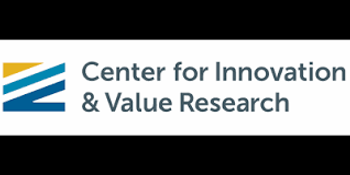
Financial toxicity is a burden many patients and their families unfortunately are forced to shoulder, leading some to delay or skip care and incur bills related to their care that they lack the financial capacity to pay off.

On this episode of Managed Care Cast, we're talking with the chief science officer of the Center for Innovation & Value Research about key insights from its Rare Disease project.

Artificial intelligence (AI) could play a pivotal role in health care moving forward.

The final report unveils actionable steps for integrating equity into health technology assessment.

On this episode of Managed Care Cast, we're talking with Jason Spangler, MD, MPH, CEO of the Center for Innovation and Value Research on equity challenges within health technology assessment.
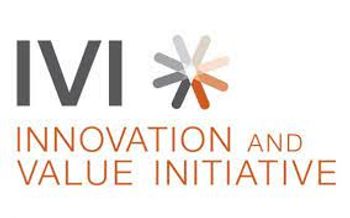

Equity has to be made front and center in conversations about value assessment, otherwise all stakeholders will continue waiting for someone else to make the first move, said one panelist at the Value-Based Insurance Design Summit.

Moving beyond academic rhetoric is the bold step needed to make a wider field of value flowers take root and flourish.

The Innovation and Value Initiative (IVI) announced the launch of its Health Equity Initiative, a 2-year initiative that aims to define gaps in value assessment methodology and develop best practices that support health equity.

In the United States, an estimated 17% of adolescents experienced at least 1 episode of major depression in the past year, and the rate among members of marginalized populations is believed to be significantly higher.
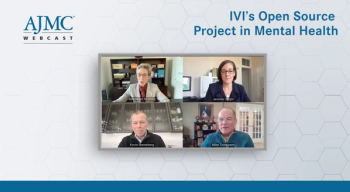
Leadership from the Innovation & Value Initiative, along with experts in mental health and a representative from employer purchasing group, discuss strategies for creating value-based decisions in mental health coverage.
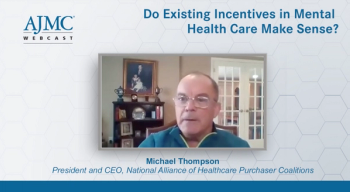
Leadership from the Innovation & Value Initiative, along with experts in mental health and a representative from employer purchasing group, discuss strategies for creating value-based decisions in mental health coverage.
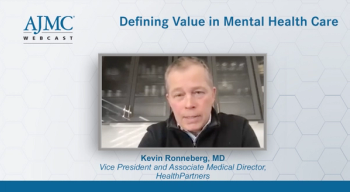
Leadership from the Innovation & Value Initiative, along with experts in mental health and a representative from employer purchasing group, discuss strategies for creating value-based decisions in mental health coverage.
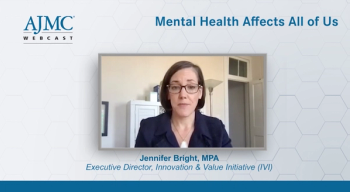
Leadership from the Innovation & Value Initiative, along with experts in mental health and a representative from employer purchasing group, discuss strategies for creating value-based decisions in mental health coverage.

Stacy Courtnay is the community network chair for the Arthritis Foundation in Atlanta highlights a report that discusses how understanding patient experiences in RA can shift questions researchers ask.

Physician and health policy advocates praised the emphasis on streamlining models and ending silos, but practices that invested in the Oncology Care Model (OCM) await key details.

Stakeholders discuss barriers and solutions to employer engagement on value assessment, which includes redefining goals to that of the employer and patient, and moving beyond the scope of cost and clinical outcomes.

The summit will address priority patient inputs for comparative effectiveness research and health technology assessments.

The authors, from the National Health Council, the EveryLife Foundation for Rare Diseases, and the Innovation and Value Initiative, unveil a project to develop a blueprint for creating patient-centered core impact sets.

The Innovation and Value Initiative (IVI) — a nonprofit organization dedicated to advancing the science, practice, and use of value assessment in healthcare — released its latest Value Blueprints research brief describing the benefits and challenges of employing open-source modeling in value assessment

The authors discuss how more efforts need to ensure the methods used to measure the “value” of new therapies include factors that reflect patient heterogeneity.

The Innovation and Value Initiative (IVI), a research-based non-profit improving the science and practice of value assessment, announced the appointment of seven members to its Patient Advisory Council, and advisory body designed to ensure the patient always remains at the forefront of value assessment.

The Innovation and Value Initiative (IVI) appoints Patricia Deverka, MD, as its first Chief Science Officer.

259 Prospect Plains Rd, Bldg H
Cranbury, NJ 08512
© 2025 MJH Life Sciences®
All rights reserved.
